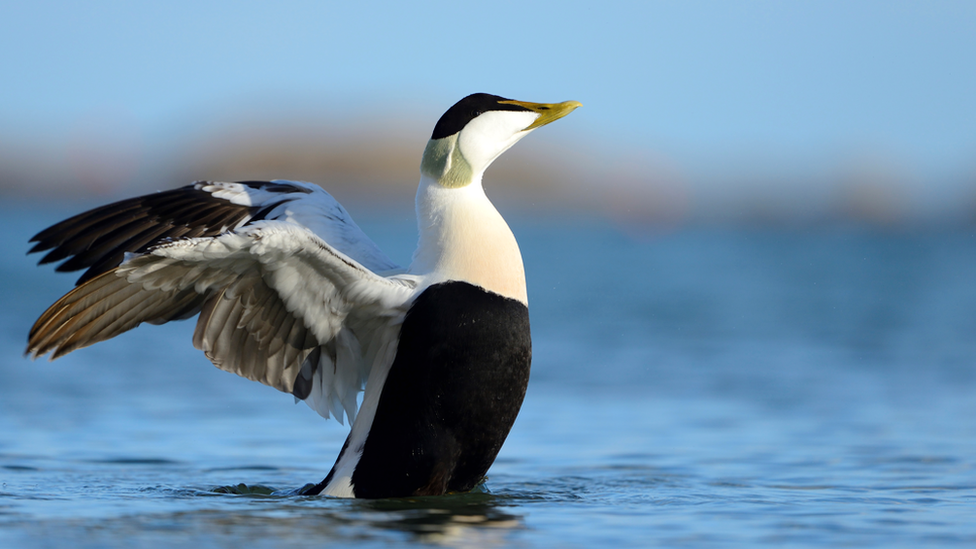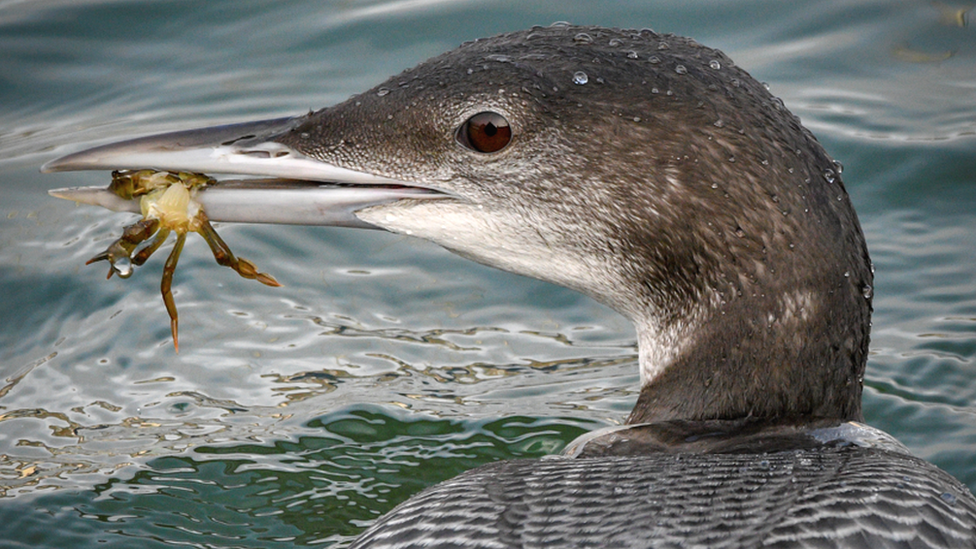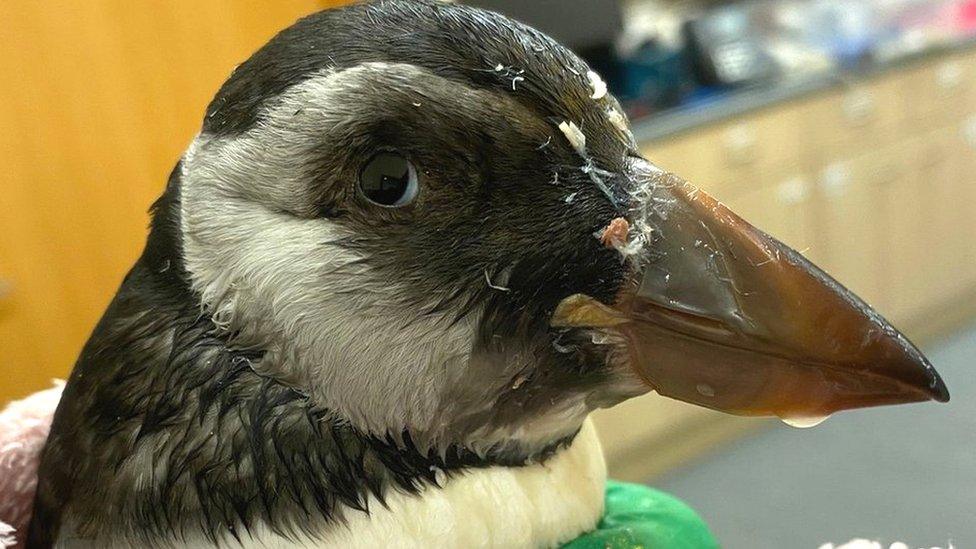Two protected sites for vulnerable Orkney seabirds
- Published

Eider ducks are among the birds being protected
Two new marine Special Protection Areas (SPAs) for vulnerable seabirds in Orkney have been announced.
Scapa Flow and North Orkney were originally left off a list of new SPAs after the council challenged the scientific evidence.
Now, after negotiations between the local authority and Scottish government, their importance to rare migrating birds has been recognised.
RSPB Scotland said the announcement was the right decision.
The wildlife charity said some of Europe's most important seabird populations, such as wintering seaducks, divers and grebes, needed to be protected.

The RSPB said many birds face an uncertain future
The sites are the latest in a network which now covers 37% of Scotland's coastline and seas.
Environment and land reform minister Mairi McAllan said it was vital Scotland protected its marine ecosystems and sustainable maritime industries and that the SPAs would play a "pivotal role" in that.
"Designations such as these ensure some of the most vulnerable seabird species and their habitats are afforded the protection they need not just for today but for future generations", she said.
Orkney Islands Council leader James Stockan said: "This has undoubtedly been a long-running process - but one which provides a great example of the value of robust negotiation and constructive discussion."
Helen McLachlan, head of marine policy for RSPB Scotland, said: "Effective protections for critical foraging and wintering areas are absolutely vital to help protect our marine birds.
"Many of them face an uncertain future due to the impact of climate change, unsustainable fishing, disturbance and pollution."
Related topics
- Published15 December 2021
